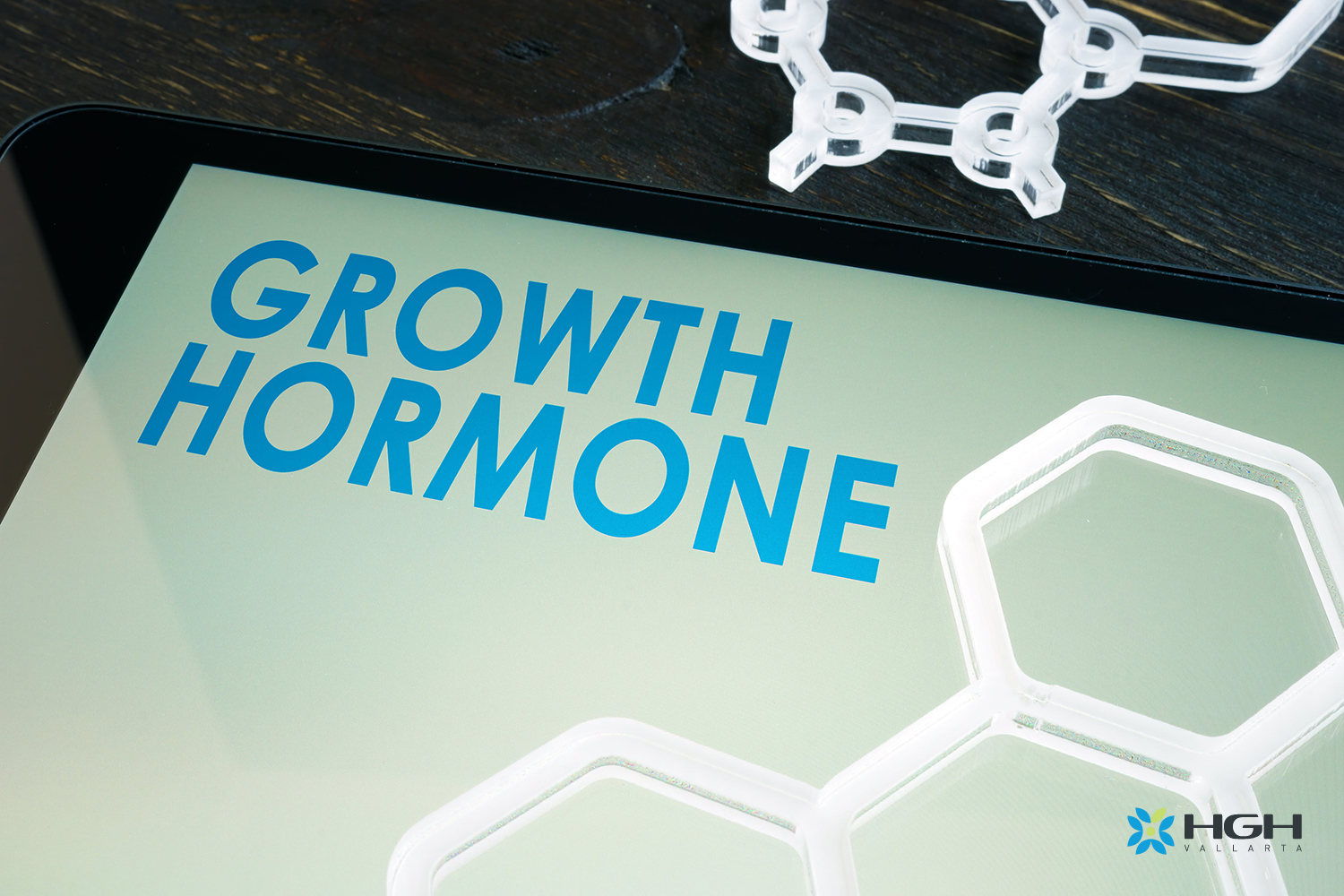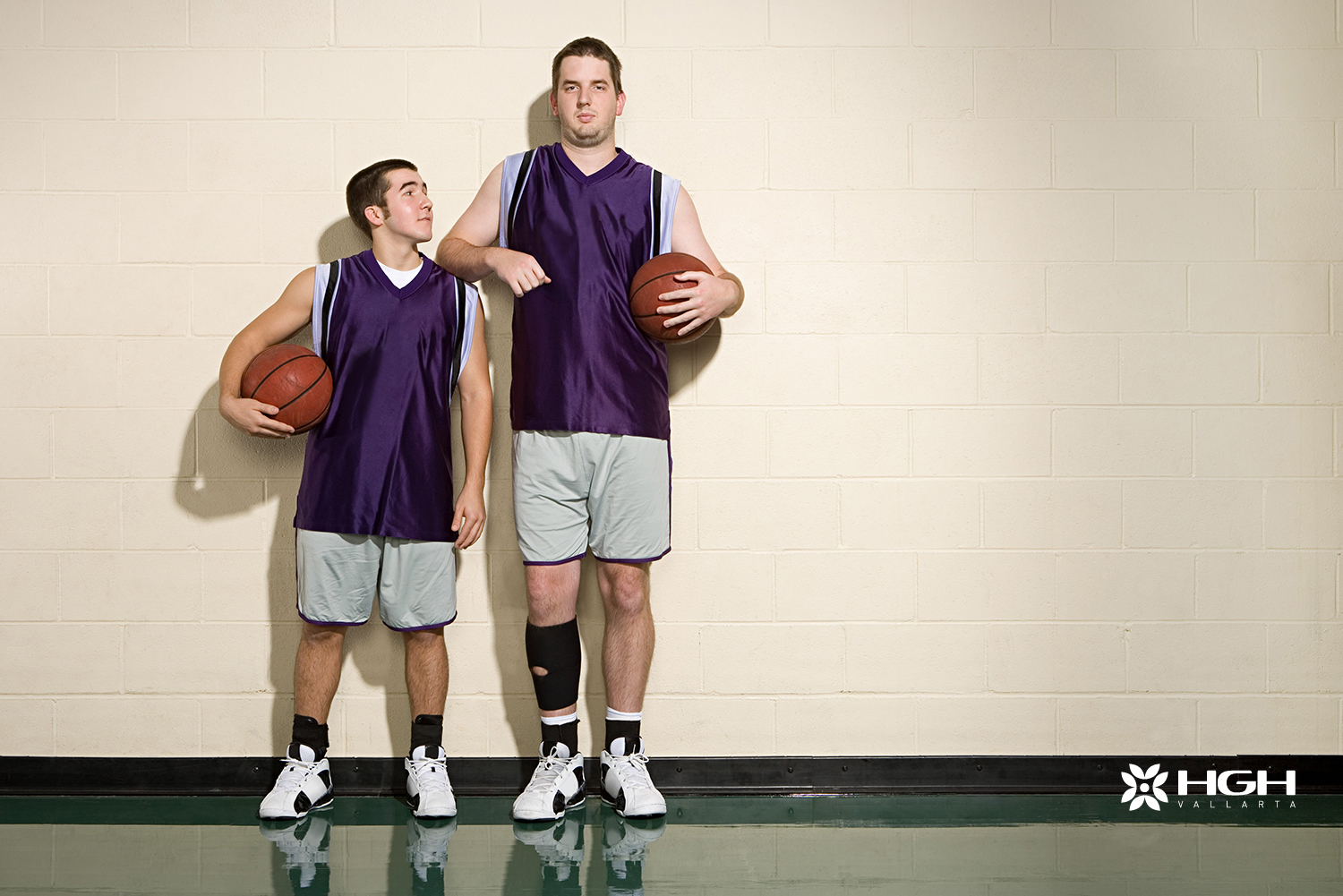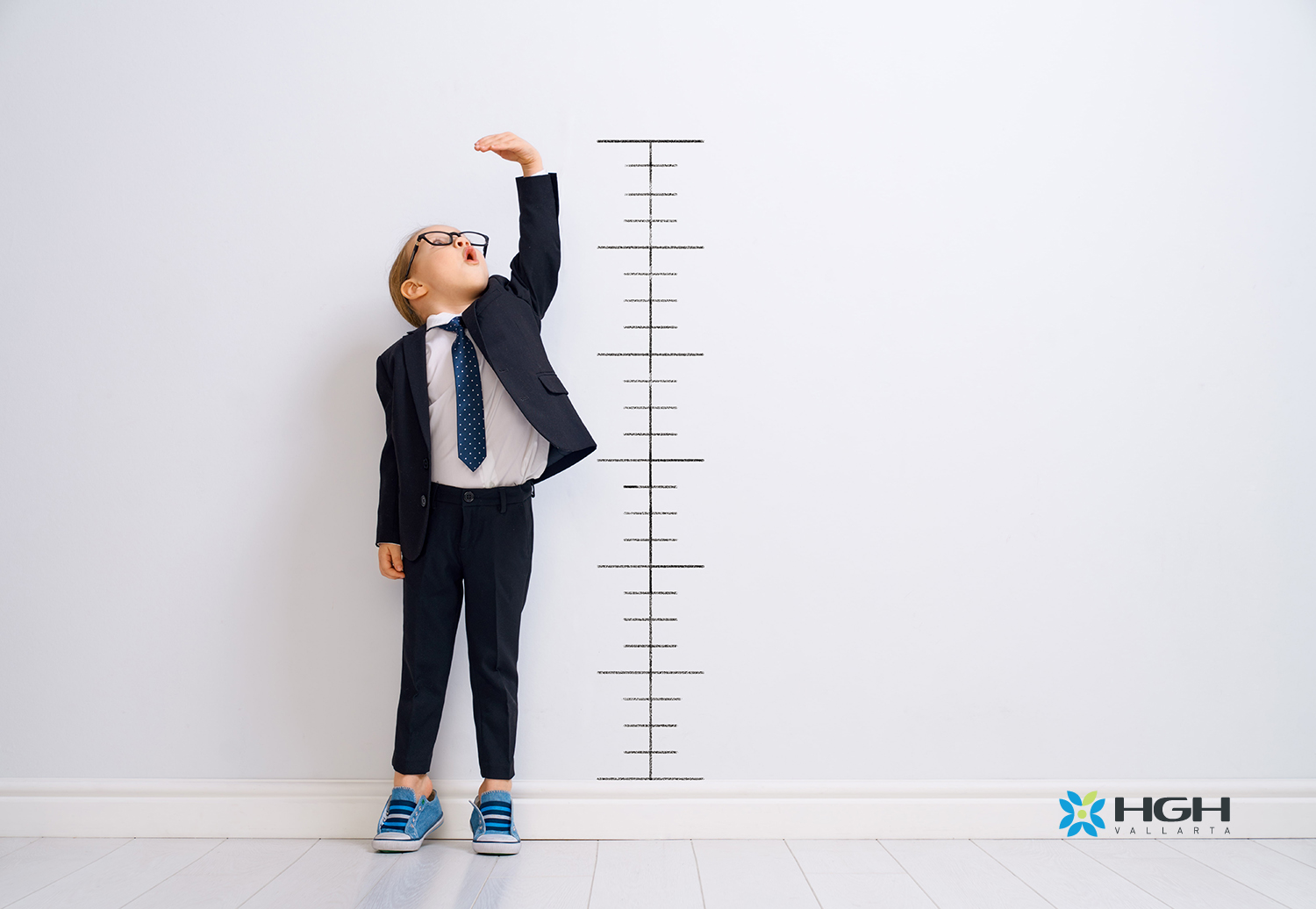
Everything You Should Know About Growth Hormone for Children
Photo from HGH Vallarta
Originally Posted On: https://www.hghvallartaclinic.com/blog/everything-you-should-know-about-growth-hormone-for-children/
Did you know that the average height for men in the United States is 5 feet 9 inches tall, while the average height for women is 5′ 3.5 inches tall? If your child doesn’t have enough growth hormone, he or she might not be able to reach a normal adult height. It is important to consider growth hormone for children. Being short due to a lack of growth hormone can not only affect your child’s height but also the strength of his bones and muscles.
Growth hormone for children in the form of supplements can often help with this problem. But what is growth hormone exactly and why is it so important for children? What will a deficiency of growth hormone accomplish in a child and how will it affect his development?
Keep reading and learn more about growth hormone’s role in child development as well as growth hormone therapy.
What You Need to Know About Human Growth Hormone Treatment

Normally, the human brain produces growth hormone from the pituitary gland. The pituitary gland is a small part of the brain that is responsible for creating and secreting all sorts of important hormones. The brain will produce the majority of its human growth hormone (HGH) during childhood and adolescence.
This is why children tend to experience “growth spurts.” At certain times, the brain will produce surges of human growth hormone. This hormone will help children grow taller but also stronger.
This hormone is very important for making a child’s muscles strong, sparking the start of puberty, and even the time at which a child’s adult teeth replace his baby teeth. In boys, human growth hormone also greatly determines the size of the penis.
Overall, growth hormone for kids is essential. Fortunately, most children produce enough of this hormone to grow into healthy adolescents and adults. As a child becomes an adult, the brain will slow down its production of human growth hormone.
However, the brain will not entirely stop producing this hormone. It is important for the body to still benefit from this hormone even in adulthood. It keeps the muscles and bones strong in adults.
Adult Height and Human Growth Hormone
However, once a child reaches adulthood, human growth hormone will no longer contribute to additional height. This is because adults have bones that are much more solid compared to children. In particular, children have growth plates at the ends of their long bones that are the sites of bone cell replication.
As cells replicate in these growth plates, the long bones will continue to get longer until the child reaches a certain height. At a certain stage of maturity, these growth plates will fuse together and harden so that the long bones cannot get any longer. For that reason, growth hormone for kids is particularly important.
If you already know that your child is suffering from an HGH deficiency, then it is important to supply the child with this hormone right away. If you don’t, then the child won’t reach full height and he will be unusually short as an adult. Once the child becomes an adult, treating him with growth hormone will not be very helpful since, again, it will not increase the height of an adult.
But how can you know if your child is suffering from a human growth hormone deficiency?
Does Your Child Have a Human Growth Hormone Deficiency?
There are a variety of causes for a deficiency in human growth hormone. Sometimes, the brain may not be able to produce enough of this hormone if it has a tumor or if it has sustained damage in the past. One of the best ways you can tell whether or not your child has a deficiency in this hormone is to look at the child’s physical stature.
If your child is very short and small for his age, he may have a hormone deficiency. Besides the child’s stature, check to see if your child is as strong as other children his age. If you find that your child is quite fragile both in terms of bone and muscle mass, he may be suffering from a hormone deficiency.
Finally, take a look at your child’s teeth. A deficiency in HGH may cause your child’s adult teeth to come in unusually late. The child may also experience puberty at a later time than other children his own age and therefore may look much younger than his actual age.
If your child has any of these symptoms, it is important to bring him to see a doctor right away. That way, a doctor can give the child a proper diagnosis. To diagnose a growth hormone deficiency, the doctor will run a few important tests.
Most likely, you will need to go to a pediatric endocrinologist. An endocrinologist is a doctor who specifically treats problems related to the body’s hormones. A pediatric endocrinologist does this specifically for children. Our endocrinologist at HGH Vallarta Clinic has a long experience helping children grow taller. Please contact us today to find out how.
The doctor will first start with a few blood tests. Unfortunately, there is no way to test directly for human growth hormone. This is because this hormone is quite elusive and is almost always made at night and in small quantities.
Testing for Human Growth Hormone

The spurts of growth hormone are also unpredictable, making it nearly impossible to measure it with a standard blood test. For that reason, your doctor will instead test for certain proteins such as IGF-I, also known as insulin-like growth factor I. The other protein that the doctor will test for is insulin-like growth factor binding protein-3, also known as IGFPB-3.
Both of these proteins will reflect the brain’s production of human growth hormone. If the levels of the proteins are unusual, this is more or less a sure sign that your child is suffering from a growth hormone deficiency. However, the doctor may still run a few more tests just to make sure.
In particular, the doctor may X-ray your child, such as your child’s hand. X-raying the hand is very important because it will show how much the child has physically developed in contrast to children his own age. The bones in the hand show a lot of a child’s development process.
The hand bones of a young child are often very short, with large spaces between the joints. This is because the hands of young children need a lot of room to grow. In contrast, the bones in the hand of an older child will be much longer and the joints will be more completely formed.
Of course, if the bones in a child’s hand are more similar to a much younger child, this is a sign that your child is lacking enough human growth hormone. Finally, your doctor may provide your child with a brain scan.
Since HGH comes from the pituitary gland, a deficiency in this hormone may stem from a problem with the brain itself. If there is a tumor pressing on the pituitary gland, it may prevent it from producing enough HGH.
Other Ways to Test for a Deficiency in HGH
Another way that the pediatric endocrinologist may test for a deficiency in this hormone is to run a GH stimulation test. Your doctor will usually only do this if the initial blood protein tests are unusual. A GH stimulation test is more of a direct way to measure your child’s HGH levels.
To prepare, you will need to make sure that your child doesn’t drink or eat anything for several hours before the test. Usually, it is recommended that the child wait overnight without eating or drinking anything. That way, the hormone’s in the child’s blood will not be influenced by any sugar or nutrients from food or drinks.
Once it is time for the test, the doctor will influence your child to produce a sudden quantity of human growth hormone. This is made possible when the doctor gives your child some medicine to stimulate the pituitary gland’s hormone production. This burst of HGH will still be somewhat sporadic, but to get the best results, the doctor or a nurse will draw blood at different intervals.
That way, there will be a better chance of catching the burst of growth hormone in the blood.
The GH Stimulation Test
If the tests find that the child has only produced a small quantity of growth hormone even with this stimulation test, your child will most likely be diagnosed with a deficiency in human growth hormone. The severity of this deficiency can differ from person to person.
Some children may only have slight deficiencies, and it may not influence their growth all that much. On the other hand, some children may have very severe deficiencies that may seriously stunt their growth and development. Whatever the case, you should always make sure that you treat growth hormone deficiency for your child with the right treatment if you find that he/she is suffering from a human growth hormone deficiency.
But how can you treat such a condition, you might ask? Fortunately, it isn’t all that hard and it mostly has to do with providing your child with human growth hormone gh supplements.
Treating Your Child With HGH Supplements

Keep in mind that your child may have an HGH deficiency for no known cause or he may have this deficiency due to a preexisting condition. For example, there are several genetic conditions that contribute to short stature as well as abnormal physical development. Turner’s syndrome is a genetic condition that occurs in girls.
It prevents the girl from growing tall and it also contributes to other physical abnormalities such as a webbed neck. A girl with Turner’s syndrome will usually not experience puberty until much later in life than what is normal. A child with Prader-Willi syndrome may also benefit from HGH supplements.
Prader-Willi syndrome is another genetic condition in which the person’s muscles are unusually weak and the person’s overall stature is slight or slightly abnormal. HGH supplements are very helpful for treating these genetic conditions and, of course, they are also helpful at treating HGH deficiencies in general.
You should always talk to a doctor before giving your child any kind of supplements that would influence his hormones in any way. Your doctor may have a better treatment plan or he may steer you towards particular HGH supplements to best help your child. You will also want to be careful when choosing HGH supplements because many of them are not yet approved by the FDA.
For that reason, you will want to do a lot of research before buying any supplements to make sure that they are high-quality. It is also important to start giving your child these supplements at a young age. As mentioned before, if you wait too long, the supplements will not be able to do much good in terms of increasing your child’s height. For this reason and others, it is important to have a child’s growth hormone deficiency treated early.
Types of HGH Supplements
There are also different types of HGH supplements you can choose from but the only one that will work is pharmaceutical grade injectable HGH . For example, brands like Norditropin and Omnitrope are popular and work well.
Doctors recommend shots since they are effective. This is because oral supplements get degraded by stomach acid. This destroys the supplement and makes it ineffective.
Keep in mind that administering a growth hormone shot is not difficult. The doctor will first show you how it’s done. Then, you should have the knowledge to administer the shot to your child by yourself.
Usually, the doctor will recommend that you administer the injectable supplements once every day. This will give your child a steady flow of human growth hormone. Doing this should stabilize your child’s physical development.
Every so often, you will need to bring your child back to the endocrinologist. That way, the doctor can keep track of the child’s hormones and growth progress. The doctor will tell you beforehand how often you will need to bring in your child for a checkup.
The Details
For example, if your child has a severe case of HGH deficiency, you may need to bring him in more often to make sure that the treatment is working. During the checkup, the doctor will check a variety of factors. For example, the doctor will check whether the dose of HGH is strong enough for your child’s particular condition.
If the doctor sees that the child is still not developing in a normal fashion, he may increase the dose of the HGH shots. The doctor will also run a few blood tests. That way, he can check to see how well the shots are working.
Keep in mind that you will not need to give your child HGH shots forever. Usually, the doctor will recommend that you stop the HGH supplements once your child enters adolescence.
Providing HGH Supplements to Your Child Later in Life
While you don’t usually need to provide your child with HGH supplements after adolescence, you might still find these supplements to be beneficial to your child. HGH supplements can even be beneficial for adults. As mentioned before, human growth hormone cannot help an adult or a fully-grown teenager grow any taller.
However, these supplements can still help the development of the human body. Some people even use these supplements for anti-aging purposes or to help them with their bodybuilding endeavors. These supplements can also improve your strength and physical health in general.
These supplements are also very important for slowing the deterioration of the body associated with age or certain health conditions. As mentioned before, certain genetic conditions can render your child weaker than normal. For example, Prader-Willi syndrome can make your child’s muscles weak and flaccid.
Having weak or underdeveloped muscles can prevent your child from living a fulfilling life. This is also true if your child has weak or underdeveloped bones even during adolescence. If the doctor sees that your child is still somewhat weak or underdeveloped by adolescence, the doctor may advise that you keep administering the human growth hormone supplements to your child.
What You Need to Know
This will strengthen the overall health and development of your child, even if the difference is only slight. After a few months of administering the supplements, you may notice that your child will start to become stronger and more developed. For example, your child may become larger in size and his muscles and bones may become stronger and denser.
In particular, you may notice a sudden growth spurt in your child after administering the supplements. This occurs because human growth hormone works very fast. Even if you start this hormone therapy later on in your child’s life, the power of these supplements may still allow your child to grow relatively tall and strong.
Once your child enters his late teens, your child should be fully developed and should no longer need these supplements. But again, the occasional HGH supplement can keep your child strong and youthful even into adulthood. But are there any side effects you should be aware of when providing your child with this kind of treatment?
Are There Any Side Effects of Human Growth Hormone Supplements?

Every supplement has at least a few side effects. Most of the time, side effects are nothing to worry about. They tend to be mild and they go away on their own after a week or so.
When it comes to human growth hormone supplements, your child may not experience any side effects at all. However, this all depends on how well your child’s body absorbs and utilizes the supplements. Some bodies don’t metabolize human growth hormone as well as others.
For example, if you give your child this supplement in the form of an oral pill, the pill may end up irritating your child’s stomach. Injecting the supplement instead will usually solve this problem. However, even injectable supplements can cause problems in some cases.
One of the most common side effects is body pain. While taking the supplements, your child may experience pain in his muscles or nerves. This is a relatively normal side effect and the pain tends to not be very intense.
The pain often relates to growing pains as the child’s body starts to become more developed under the influence of the supplements. Again, as with most side effects, this side effect will usually go away on its own after a few days or weeks. Your child may also experience a few other physical sensations such as tingling or numbness.
Other Side Effects
Usually, this tingling and numbness occur in the extremities such as the hands or feet, although it may also occur in other parts of the body. Again, these sensations are not harmful and they will go away with time. If these sensations are usually severe, it may be because the supplement dose is not right for your child.
In this case, you should go back to your doctor for guidance. The doctor will then increase or decrease the dosage accordingly. In rare cases, the side effects may be more serious. For example, your child may start to exhibit high cholesterol levels.
Your child may also start to experience edema (tissue swelling). Again, your doctor will determine what the best treatment plan is to best address these potential problems.
All About Growth Hormone for Children
Growth hormone for children can certainly be beneficial if your child is suffering from a human growth hormone deficiency. A deficiency in this hormone can leave your child short in stature, weak, and underdeveloped compared to other children of the same age. The main treatment option is to provide your child with HGH supplements.
After taking these for a while, the child will eventually catch up in terms of development. To learn more about HGH supplements, click here.
